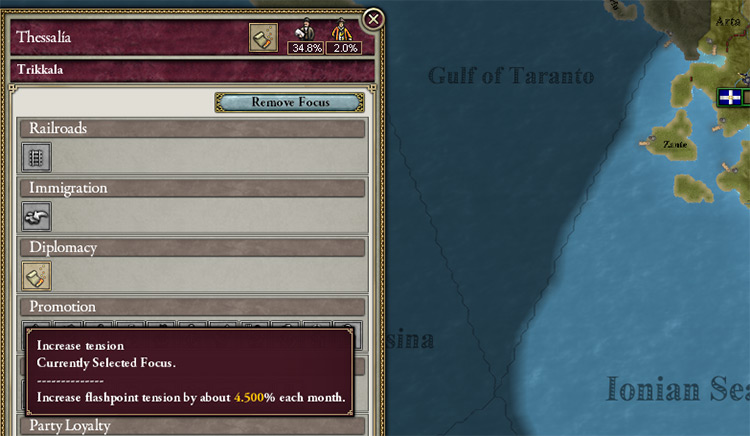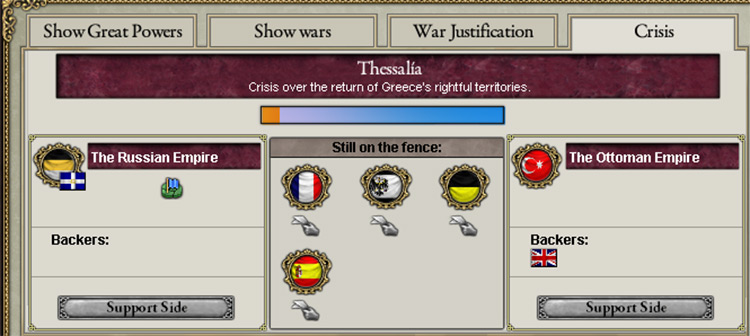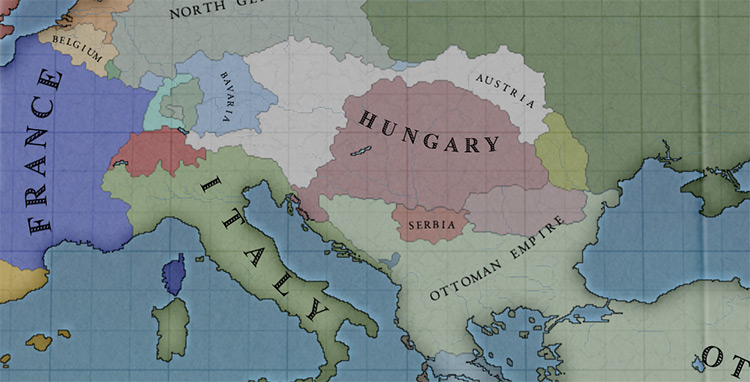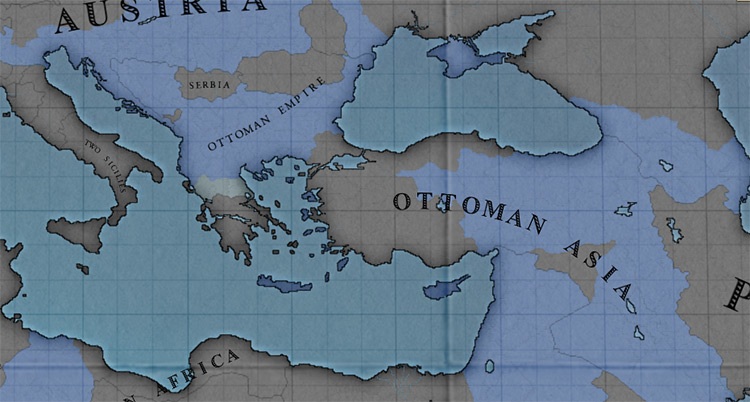A crisis is a diplomatic incident between two great powers over the ownership of a single state. Usually, two great powers champion the interests of smaller countries against their rivals or fight over colonial provinces where both of them have invested colonial power. During a crisis, the other great powers on the same continent will be prompted to support one of the two sides or face a hefty prestige penalty. For this reason, the AI will never stay out of a crisis entirely. If a crisis is not resolved peacefully within a short timeframe, a massive war between the two sides will ensue.
Starting a Crisis in Vic 2
A crisis can arise in two ways:
Through liberation or unification movements in a flashpoint province. As these movements grow more violent and radical, the tension will rise, forcing a new crisis to begin. This can be quite an inconvenience for the whole campaign. Through colonial disputes: as great powers claim the same territory and refuse to give up, tension will rise and eventually escalate into open conflict.
Method 1: Liberation Movements
Liberation movements can only happen in flashpoint provinces. The requirements for a province to be a flashpoint are:
The province must belong to a nation that does not have a core on it and does not accept its majority culture. The province must be a core province for another nation, or its pops must be of that nation’s culture.
A flashpoint province will generate tension unless the independentist movement is suppressed (even then, the rebels will eventually return, stronger than before). Tension will ultimately lead to a crisis. A nation can also generate tension by using a national focus on a state it does not own, but could acquire through a crisis. Great powers, however, are forbidden from doing so and must reclaim their territory through open war.
Method 2: Colonial Disputes
Great (and secondary) powers also generate tension through colonization. More specifically, two nations colonizing the same province will generate more and more tension as the colonization proceeds, leading to a crisis. This means risking an all-out war between the two parties and their respective allies. This can be avoided by stopping the colonization process, leaving the contested territory to the other power, and backing down. Abandoning colonies is not, however, a reliable strategy to build a global empire: expansion requires going through a crisis or two.
Crisis Resolution
Once a crisis begins, the great powers will pick sides. If you are a great power and not one of the initiators of the current crisis, you may avoid getting involved at all. If the crisis is in your home continent, however, this will cost you 20% of your current prestige (and that’s a lot of prestige, maybe enough to cost you your great power status). Most great powers, despite showing initial interest, will be reluctant to actually intervene militarily and put their armies where their mouth is. The first ones to take sides will be those with strong interests threatened by the crisis or strong ties to the countries involved. Two leading nations will be chosen to lead the opposing factions. These leaders will conduct negotiations and make concessions to the other great powers to persuade them to join their side. These concessions will be added to the list of wargoals, and will cause a considerable relation penalty if not met. In other words: empty promises will seriously worsen international relations. A crisis can easily jeopardize well-established alliances and have global, lasting consequences even if it does not end in a war. As grand coalitions are built, the crisis temperature will rise until either a compromise is found or the limit is reached and war breaks out.
When Diplomacy Works
If all goes well, one side will accept the demands of the other, chosen from a list of wargoals, and the crisis will be resolved without large-scale violence. Old empires may crumble without a single drop of blood, and the world will move on to the next inevitable crisis. By outmaneuvering the AI in the crisis system, you can cripple your enemies or expand your own power by acquiring core states or spherelings.
When Diplomacy Fails
Should a compromise not be reached in time, a war will be declared. Crisis Wars are grand, terrible conflicts that do not allow for separate peace deals, forcing all participants to stay in until the end of the war. Even then, not all the objectives of the winning side may be achieved, resulting in bad blood among both the victors and the vanquished.
Common Crises During Gameplay
Some areas in the game are more prone to crises than others because they are the ideal flashpoint locations:
The Balkans under the Ottoman Empire are filled with tags such as Croatia, Albania, Serbia, and Bulgaria that will inevitably seek independence from their Turkish overlords and generate a crisis. The ottomans will be forced to choose whether to fight the other great powers, eager to dismantle their empire or to lose some territory peacefully. Most of the Austrian Empire is in the same situation, with the big difference being that Hungary becoming independent would be a crippling blow to Austrian power. This can be averted through the formation of Austria-Hungary, but linguistic and ethnic divisions will be the ruin of Austria more often than not. Poland is a large-ish country that will try to gain its freedom from the Germanic powers, Austria and Prussia, and from the Russian Empire. Korea and Southeast Asian nations such as Burma, Siam, and Dai Viet are easy targets for European powers eager to expand their empire overseas or an early-industrialized Japan, but they will try to regain their lost independence for the whole game.
These are all great locations to practice with the crisis system until you’re capable of outsmarting the AI (when you can’t afford to overpower it).



